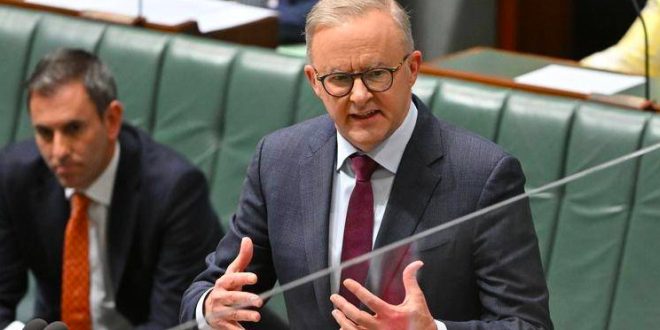News broke across Australian media networks this weekend that Prime Minister Anthony Albanese would push back settling gambling advertising reforms to 2025. The delay was attributed to opposition from the media and sports, who depend heavily on revenue from gambling advertisements.
As it stands, the government has yet to present its definitive proposal on gambling advertising reforms to be implemented as federal law as Labor has insufficient time to finalise and pass the legislation in 2024.
Pledged in its 2022 General Election manifesto, the Labor government has faced severe criticism for failing to address gambling advertising reforms, regarded as the most critical recommendation of the Murphy Report, submitted in 2023.
The late Labor MP Peta Murphy, who led the federal inquiry into gambling reforms, stated in her final report: “Australia must act decisively to curtail the influence of gambling advertisements on our society. Normalising gambling, particularly among young people, is a public health crisis waiting to happen.”
Murphy’s report recommended a phased three-year approach to ban all forms of online gambling advertising across Australian media platforms.
Following its ban on credit card wagering announced earlier this year, the Labor government revealed it would review the advertising proposals endorsed by the Murphy Report. However, reports indicated that these proposals did not carry favour with PM Albanese.
During the standstill period, PM Albanese reportedly favoured putting forward “a measured approach for advertising” to implement desired reforms, including banning ads from one hour before to one hour after sporting events, capping gambling ads on TV at two per hour, and restricting the targeting of online gambling advertisements.
Speaking to reporters, Albanese defended this position, saying: “We need to find a balanced path that addresses community concerns while supporting industries that Australians rely on for jobs and entertainment.”
These countermeasures were immediately chastised by gambling reformists. Independent MP Andrew Wilkie, a vocal advocate for gambling reforms, called the delay “a slap in the face to vulnerable Australians who have been harmed by gambling.”
He added: “Watering down Murphy’s proposals shows the government is bowing to pressure from the gambling lobby instead of standing up for the people it promised to protect.”
Critics argue that any further postponement undermines the urgency of addressing the social harm caused by the pervasive presence of gambling advertising.
Reverend Tim Costello who leads the Alliance for Gambling Reform stated: “Every day this government delays meaningful reform, more families are hurt. The saturation of gambling ads is driving addiction and destroying lives.
Meanwhile, the media and sports industries have raised concerns about the financial impact of an outright ban. A spokesperson for Free TV Australia warned: “A complete ban would jeopardize the viability of smaller broadcasters and could have a ripple effect across the economy.”
Similarly, representatives from the Australian Football League (AFL) have highlighted the role gambling sponsorship plays in funding community programs. “We need a solution that ensures the sustainability of grassroots sports while addressing community concerns,” said an AFL spokesperson.
Despite the setbacks, Communications Minister Michelle Rowland has reiterated the government’s commitment to addressing the issue. “We understand the concerns of both the public and the industries involved. Our goal is to craft legislation that reduces harm while balancing economic realities,” Rowland said.
As the 2025 deadline looms, political analysts warn that the government’s handling of the gambling ad reform debate could become a significant issue in the next federal election.
Professor Mark Kenny from the Australian National University observed: “This is a test of the government’s ability to reconcile its progressive promises with practical governance. Failure to deliver meaningful reform could alienate a significant portion of its voter base.”
The Labor government now faces the challenge of reconciling its electoral commitments with the demands of industry stakeholders, all while under growing pressure from reform advocates to act decisively. As reformists, industry leaders, and voters await further announcements, the Albanese administration finds itself at a crossroads in this contentious policy debate.
Don’t forget to subscribe to our Telegram channel!










